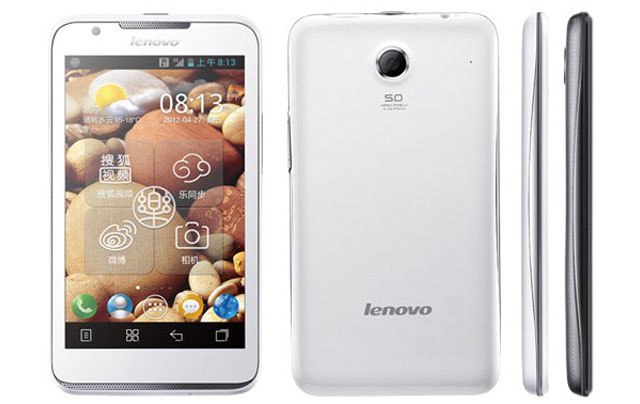
Computer maker Lenovo has its sights set on Africa, and it’s not just the PC market in which it wants to compete more aggressively. The company is set to release a dual-Sim, low-cost smartphone in SA before the end of the year, a move that could annoy operators while delighting consumers.
Jack Lee, Lenovo’s vice-president and GM for the Middle East and Africa, says the company has decided to go “beyond the PC” and its strategy involves the “four screens” of smartphones, smart TVs, PCs and desktops, and laptops.
The company intends to begin offering three tablet computers in SA, too, each aimed at a different segment of the market.
Though it will compete, at least at first, using Android, Lee says Lenovo is also looking to manufacture Windows Phone-powered devices and ARM-based tablets running Microsoft’s forthcoming Windows RT operating system.
The Lenovo S880 — called “LePhone” in some markets — should be available in SA by the fourth quarter of this year. Lee says the dual-Sim, 5-inch “phablet” retails in China for the equivalent of R2 000 but the SA price has yet to be set.

The Android-powered device is the first of a number of smartphones Lee says Lenovo plans to bring to SA. The S880 runs Android Ice Cream Sandwich, is powered by a 1GHz single-core processor and 512MB of RAM, and includes GPS, a 5-megapixel rear-facing camera, a 0,3-megapixel secondary camera, and offers 4GB of flash memory which can be expanded via a microSD card slot.
The 5-inch display offers only 800×480-pixel resolution, but if the company can offer the device at a low enough price, the ability to use two Sim cards could win over prepaid SA consumers.
Operators have been reluctant to offer dual-Sim handsets. Lee says that, if necessary, Lenovo will push the devices directly to electronics retailers with which it has existing agreements, bypassing the operators.
Steven Ambrose, MD of consulting firm Strategy Worx, doesn’t think Lenovo has any meaningful chance of making an impact in the SA mobile market with its Android smartphones – because of the price and because operators could be unwilling to carry them.
“There little chance of it having any impact whatsoever without operator support, even if it’s dirt cheap,” says Ambrose. He says Lenovo is not known for smartphones in SA and consumers here are brand concious. Furthermore, there’s already a great deal of competition in the large-display, touchscreen handset market already.
Ambrose says that even if the device targets the low-end of the market, contract availability is imperative. “Most SA consumers take out contracts to get new handsets. These devices won’t succeed in the retail market unless Lenovo does enormous retail marketing.”
Because of the current lack of brand awareness of Lenovo as a mobile player, Ambrose says a low price may also be an impediment to uptake.
“The device might not be taken seriously at that price [R2 000],” he says, adding that consumers aren’t yet accustomed to budget smartphones and may not yet be willing to put their trust in a low-cost device.
Lee says Lenovo is working hard to improve awareness of its brand in SA and is broadening the range of devices it offers, including providing high-end all-in-one PCs like the IdeaCentre A720. — (c) 2012 NewsCentral Media




